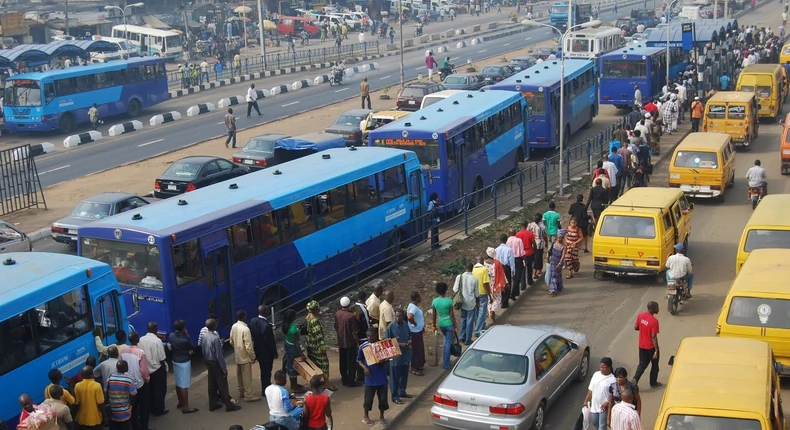Numerous commuters in Lagos have expressed their appreciation for the Lagos State Government’s decision to reduce fares on the Bus Rapid Transit (BRT) scheme.
The fare reduction, which took effect on Wednesday, has been described as a much-needed relief by those who rely on public transportation in the city.
Governor Babajide Sanwo-Olu had earlier announced the 50 percent reduction in BRT fares on Monday, following the removal of petrol subsidy. The move aimed to alleviate the hardships faced by commuters after the subsidy removal.
In addition to the BRT fare reduction, privately-owned yellow buses also pledged to lower their fares by 25 percent from the same date, further providing some respite for the commuting public.
Jude Emeka, a furniture trader from Orile area, shared that he used to spend over N4,000 on transportation to and from Oko-Aafo before Wednesday. However, since the fare reduction, his daily expenses have reduced to between ₦2,400 and ₦2,600, making his daily commute more affordable.
Margaret Ajayi, a teacher who works in Onipanu and resides in Iyana Ipaja, praised the state government for reducing the fares to ₦350, down from ₦600 prior to the slash. Although she found some relief in the fare reduction, she urged the government to fulfill other promises of providing additional palliatives.
Kayode Kalejaiye, a resident of Osho Street in Shomolu, who sells keys, revealed that transportation costs had limited his ability to take his children to school daily since the subsidy removal. He expressed hope that the fare reduction continues, allowing him to resume daily school trips for his children.
According to the report several commercial bus routes have also adjusted their fares in response to the subsidy removal and government’s fare reduction initiative. For instance, the fare for a trip from Lagos to Mushin has decreased from ₦600 to ₦300, while government buses now charge ₦250 from Ikorodu to Fadeyi, Ikeja, and Oshodi, instead of the previous ₦400.
Prof. Bamidele Badejo from the Department of Geography at Olabisi Onabanjo University and Associate Professor Victor Dosumu from the Department of Transport Management at Ladoke Akintola University (LAUTECH) also lauded Governor Sanwo-Olu’s intervention. However, Dosumu highlighted the need for more commercial buses to fulfill their promise of a 25 percent fare reduction across Lagos.
He also called for a focus on refining and operationalizing other refineries to reduce the impact of fuel prices on transportation costs.
In conclusion, Lagos commuters are grateful for the government’s effort in easing their financial burden through the fare reduction, and they hope for further improvements in the public transportation system.
